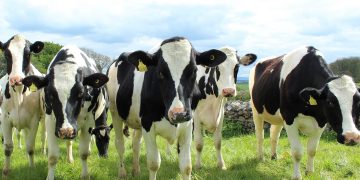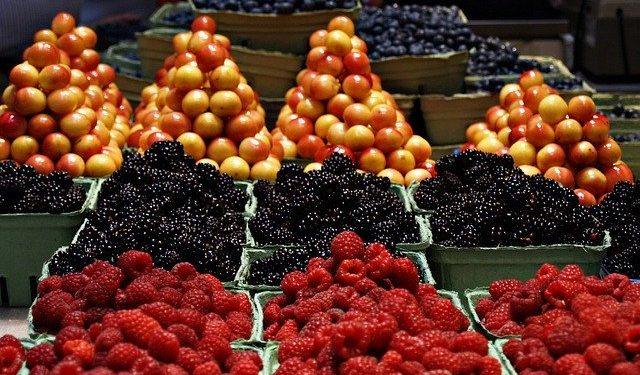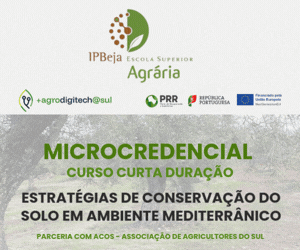Western consumers tend to have a generally positive view about genome-edited foods, though their awareness of the technology remains low, two new studies have found.
One survey, conducted by the United Kingdom’s Food Standards Agency (FSA), looked at attitudes in England, Wales and Northern Ireland, while the other, conducted by university researchers, assessed consumer views in Germany, Italy, Canada, Austria and the United States.
The new studies complement results reported from Norway last year that found consumers there are receptive to using gene editing tools in agriculture if they bring social, economic and environmental benefits. The combined results suggest that anti-biotechnology sentiments have waned in Europe and the UK. Indeed, the new university study found only minor differences between the five countries studied. The UK study was conducted specifically to assess consumer attitudes as it seeks to define new food policies after splitting off from the European Union.
Both the FSA and university study found that people were more receptive toward applications that changed the genome in plants, rather than animals. The university study determined that consumers are more likely to support editing that improves animal welfare, rather than increases production, while the FSA study found that consumers preferred both genome editing and genetic modification in plants over alternations in animals. Consumers in the FSA study were also concerned about harm to animals that could come from intensely farming animals that had been gene-edited to resist diseases.
Both surveys found that consumers have very little knowledge or awareness of genome editing. However, they tended to view it more favorably than genetic modifications, seeing it as a more natural process. The perceived naturalness of food is important to consumers, the surveys found, as they see it as being safer and more environmentally friendly.
Both the university and FSA study found that men, younger people and those with higher education levels had more favorable attitudes toward genome-edited foods. They also found that the application does matter, with people less receptive toward changes made for cosmetic or aesthetic purposes or to achieve more production from animals.
The university study, which had a sample size of 3,698 participants, reported 21 percent were strong supporters, seeing few risks and many advantages, while 26 were supportive, seeing many benefits, but also some risks. Twenty-nine percent were neutral, holding no strong opinion on the topic, while 24 percent were opposed to the technology, regardless of possible benefits, because they viewed it as high risk.
The university study, published in the Agriculture and Human Values journal, also found that while nearly all of the participants had heard about genetic modification (GM), less than half were aware of gene editing technology. About half of the respondents rated their knowledge about both technologies as very low to below average. While the majority understood the concept of GM, the same was not true for gene editing.
The FSA study, which included online workshops and a survey of 2,000 people, also found that consumers tended to have little knowledge of gene-edited food. Most had not heard of it or confused it with GM food. Receptivity increased with education, though consumers still retained some concerns and supported labeling for edited products. Most felt different labeling scenarios would be appropriate for edited and GM foods.
Many also supported a high level of testing, scrutiny and regulations for edited foods, due to both possible unknown risks and fears that profit-minded corporations “could undermine the potential benefits for consumers, animals and the environment unless regulated carefully. They were very clear about the importance of adequate animal welfare regulations.”
The regulatory issue is front and center for the UK. The EU currently regulates edited products in the same way as GM products, though it is currently reassessing that approach and France has called for revisions. The UK could follow EU or go its own way. The US and some other countries have indicated they will take a less stringent approach to regulating editing products. The uneven regulatory approach has raised questions about international trade, product testing and labeling and other issues.
The regulatory process also influences the cost of developing products through biotechnology. This in turn limits the technology primarily to large companies that can afford it and typically restricts its use to economically valuable commodity crops. Some public sector scientists have argued for a less costly regulatory scheme for edited products so that regional and orphan crops important to food security can be improved and public institutions can get new crops and products to farmers and consumers.
The FSA study also included an educational component conducted through online workshops that explained concepts like the genome, DNA, different breeding techniques and CRISPR. Participants were given pre- and post-workshop surveys on their willingness to eat genome-edited foods. After the educational session, 74 percent said they would be fairly or very willing to eat such foods, compared to just 30 percent before the instruction.
Some of the questions about genome-edited food raised in the FSA study included: is it needed, will it become more common, is it safe, what are the long-term health impacts, has it been tested on humans, what are the risks, why is it available in some countries but not others, does it taste different, will it be more expensive, will it result in inferior food being imported from the US and where will this technology go next?
BY JOAN CONROW


























































Discussão sobre este post